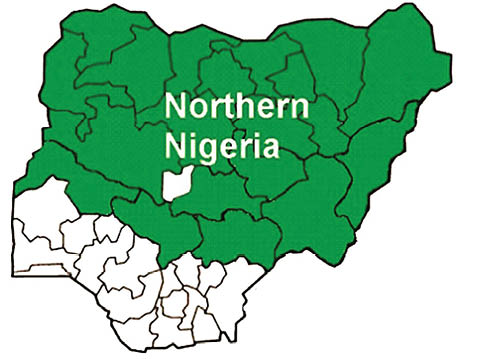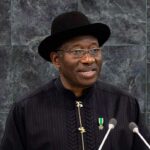As a trained historian, my thoughts, views and actions would naturally be conditioned by my academic discipline. I am, therefore, convinced that what Northerners need to solve the current failure of our society is to bring history a bit close in our search to finding solutions to the problem. Once we do so, we won’t fail to see that the solution actually lies in our elites of good standing coming together to act in unison!
History, indeed, is replete with many instances where in times of serious social, economic and political crises, as the current one Nigeria is experiencing, certain individual elites of good standing come together into groups, united by a vision for change, to democratically take up leadership and initiate successful transformative changes for their societies; illustrating how collective determination for positive change can emerge and succeed in challenging times. The following examples stand out glaringly in modern history.
The founding of the United States in the 1770s-1780s is an important example to illustrate the power of collective action of individuals. When the American colonies faced hardship under British rule – suffering from restrictive trade policies, high taxes, oppressive governance, etc. certain elite individuals in the colonies, like George Washington, Thomas Jefferson, Benjamin Franklin, along with a few others, demanded independence from Britain as a permanent solution to their yoke. They then unified the colonies under the principles of freedom and democracy. The resulting American Constitution was a success, establishing a democratic nation and sparking a global movement toward self-governance.
The French Revolution of 1789 was triggered by severe economic inequality, widespread poverty and political oppression, just like Nigeria of today; the difference is that Nigeria is under democracy and France under monarchy. The financial crisis and social unrest triggered a unification of individual elite thinkers and reformers determined to reform the system. Although it was a tumultuous journey, it succeeded in dismantling oppressive structures, inspired democratic ideals and laid the groundwork for the modern French Republic.
- Northern Nigeria’s struggle amid a seven-day blackout
- Urgent need to popularise the AU Free Movement of Persons Protocol
The Rise of the Labour Movement in Britain in the 19th-20th centuries during the Industrial Revolution by workers under appalling conditions, poverty, low wages and poor political representation, organised by a few individuals who came together, also laid the foundation of modern British society. A coalition of labourers, trade unions and reform-minded intellectuals like Keir Hardie formed the Labour Party to address these issues.
Despite resistance, they pushed for labour laws, expanded suffrage and worker’s rights. Their successes gradually transformed Britain into a more equitable and democratic society, influencing labour rights worldwide and highlighting the power of collective action for social reform.
Under British colonial rule, India endured economic exploitation, social injustice and political subjugation. The independence movement, led by figures like Mahatma Gandhi, Jawaharlal Nehru and Sardar Patel, brought together a cross-section of society, united in the cause of self-governance and justice. Through determined efforts in non-violent resistance and coalition-building, India eventually achieved independence in 1947. This unity in crisis reshaped the nation and stands as a testament to the power of collective resolve in times of national distress.
Again going back to the United States in the 1960s, amid racial segregation, economic inequality and disenfranchisement, the country experienced a powerful social upheaval led by individuals like Martin Luther King Jr., Rosa Parks and Malcolm X, among others. African Americans and their allies united to fight for equal rights and justice, using non-violent protests, legal battles, and grassroots organising.
This movement successfully led to landmark civil rights legislation, effectively dismantling institutionalised racial barriers and profoundly changing American society.
Under apartheid (1948-1994), non-white South Africans suffered extreme discrimination, restricted economic opportunities and political exclusion. Leaders such as Nelson Mandela, Oliver Tambo and Desmond Tutu came together and rallied people across racial and social lines to resist apartheid.
The movement endured significant challenges but ultimately succeeded in establishing a democratic South Africa. This movement exemplifies how individuals and groups, united by a just cause, can overturn oppressive regimes and create a fairer society.
The Solidarity Movement in Poland (1980s) was the coming of few individuals to resist widespread economic and social repression under Communist rule which ultimately led to the rise of Solidarity, a labour movement led by Lech Walesa.
Solidarity united workers, intellectuals and citizens demanding political freedom and economic reforms. Despite a harsh government crackdown, the movement persevered and eventually helped to topple Communist rule in Poland through a democratic process. This grassroots effort inspired similar movements across Eastern Europe, ultimately contributing to the fall of the Iron Curtain.
The Arab Spring of the 2010s also brings the point home in Africa. Economic hardship, high unemployment, political corruption and repression fueled uprisings across the Middle East, beginning in Tunisia and spreading to Egypt, Libya, Syria, and beyond. The Arab Spring brought together a broad coalition of citizens, activists, and reformers united by a vision for freedom and democracy.
Although the outcomes varied, the Arab Spring demonstrated the power of collective action and the quest for democratic governance under crisis conditions.
These historical examples, and many unmentioned others, reveal a clear pattern – i.e. challenging times often catalyse collective movements where committed individuals and groups, galvanised by shared grievances and united by a vision for change, rise to come to the rescue!
In each instance, these movements fostered systemic change, reshaping societies toward greater equity, representation and justice. This underscores how, in the face of daunting social, economic and political upheaval, the collective determination of individuals can lead to democratic transformations and lasting progress.
With an open mind and positive attitude, History here has a causative pattern that should not be missed in our efforts to proffer lasting solutions to (Northern) Nigeria’s problems. If the current situation in the North does not catalyse such coming together of committed individuals to help change the cause and course of things, then I don’t know what would. Hence, I see in the formation of the League of Northern Democrats as such a catalyst.
Ardo, PhD, resides in Abuja

 Join Daily Trust WhatsApp Community For Quick Access To News and Happenings Around You.
Join Daily Trust WhatsApp Community For Quick Access To News and Happenings Around You.


